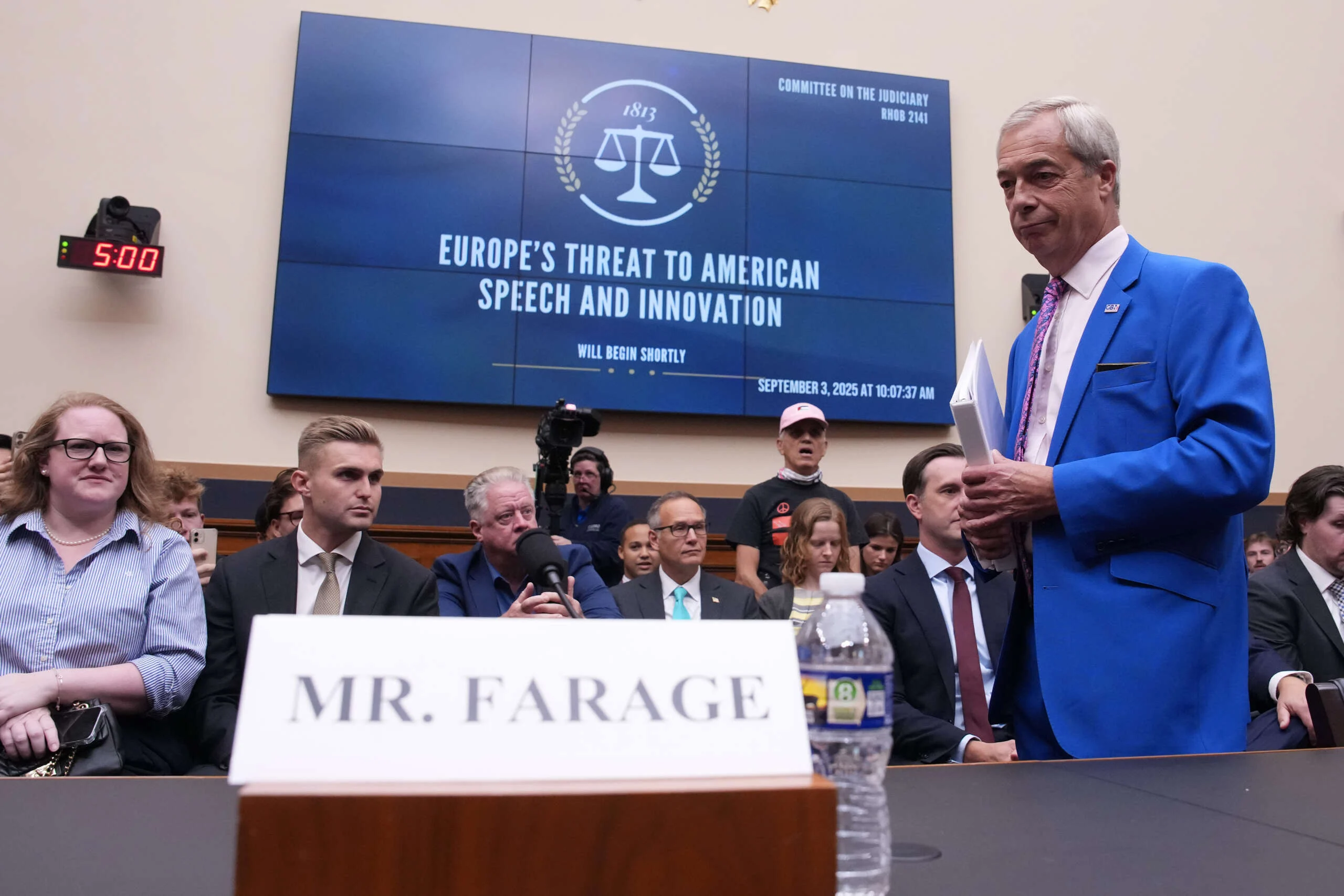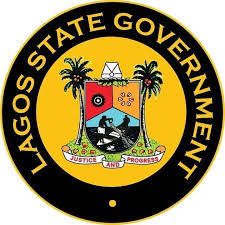By Sasha Abramsky
Copyright truthout

Throughout Donald Trump’s election campaign, a growing number of big-name Silicon Valley figures attached themselves to the MAGA bandwagon. They were drawn not just by the lure of access to power, but by Trump’s promises to free up social media, in particular, from any and all content restrictions; to promote cryptocurrencies; and to corrode regulatory oversight of the high-tech titans. Overseas, an increasing number of far right politicians began emulating Trump’s language, wooing Big Tech and claiming that governments in their countries were censoring controversial ideas. However improbably, the avatars of the far right began describing themselves as defenders of free speech in an increasingly intolerant age.
This dynamic was on full display this month in Washington, D.C., when Nigel Farage, the leader of Britain’s hard-right, anti-immigrant, pro-Brexit Reform Party, came to testify before a congressional hearing on internet censorship on September 3. Farage’s message was that recently passed laws in the U.K. and in the European Union (EU) are fundamental threats to freedom of speech and expression, and that U.S. politicians need to stand firm in preventing similar laws from being passed in this country. “At what point did we become North Korea?” he asked of the U.K., while testifying before the U.S. Congress.
It was, of course, a manufactured spectacle. Regardless of where one comes down on the issue of limiting what can be said online, and what the penalties are for transgressing these rules, it should be clear that Farage — who fancies himself as the U.K.’s slightly more polished version of the U.S.’s MAGA president — is as little concerned with true freedom of expression as is the book-banning, museum-censoring, university-attacking, science-manipulating Trump. Of course, there has been plenty of rightful pushback against acts of censorship from the current U.K. government. That includes condemnation from organizations like the UN against the U.K. proscribing Palestine Action under its Terrorism Act 2000. In that case, Farage actually agreed with the ruling government and voted in favor of the ban on the activist group. There’s no evidence that Farage’s political movement is genuinely interested in across-the-board, free, open, and peaceful debate.
In fact, the Reform Party leader — who wants to summarily deport 600,000 people, and whose party polls suggest he could make a serious run for a parliamentary majority at the next general election — doesn’t really give a hoot about free speech unless it’s free speech on behalf of his noxious political vision.
Many of the Reform Party’s supporters view the fascist street fighter Tommy Robinson, who has built a career espousing anti-Muslim, and, more generally, anti-immigrant credos, as their bedfellow. Elon Musk has gone out of his way to give shout-outs to Robinson. And although Farage has distanced himself from Robinson, at the same time he has lent his support to the anti-asylee protests, many of which have turned violent, that have taken place outside the hotels accommodating asylum seekers in the U.K. over the past few years. In other words, Farage wants to distance himself from Robinson-the-man, while leaning into the protests at which Robinson’s message is most amplified and claiming that efforts to police them represent an infringement on free speech.
Farage has consistently downplayed the anti-immigrant violence at these events, disingenuously claiming that it was caused by a “few bad eggs,” and instead insisting — with echoes of Trump’s comments about there being “very good people” at the neo-Nazi gathering in Charlottesville in 2017 — that most of the protesters are “genuinely concerned families.” He has argued that mass migration will be met by massive civil disobedience, and he has said that the anti-immigrant protests are a result of the fear that tens of millions of Brits feel because of the presence of increasing numbers of immigrants.
Political figures such as Farage are, at best, deeply selective in what sorts of free speech rights they espouse. When convenient, they play up their free speech credentials; but at the same time they also have a track record of supporting authoritarian leaders such as Vladimir Putin who have scant respect for human rights and free speech in their own countries – an inconvenient truth that Congressman Jamie Raskin was quick to point out during Farage’s testimony.
Yet Farage has powerful allies in the U.S. these days, both in the realm of politics and in the world of big tech. He is on friendly terms with Trump (who hosted him at the White House during his D.C. visit) and met up with J.D. Vance during the vice president’s recent English countryside holiday. Farage was invited to testify before Congress by Jim Jordan, the hard-right chair of the House Judiciary Committee. There is little doubt that, if Trump is still in power when U.K. voters next choose a government, he will do everything he can to put his thumbs on the scale in Farage’s favor.
And while Elon Musk has taken potshots at Farage as an individual, he has also backed the Reform Party – and at one point, intimated he might fund it to the tune of $100 million, which would have been by far and away the largest single political donation in U.K. history. This is in keeping with Musk’s much-publicized endorsement of the neo-Nazi AfD party in Germany. The Tesla founder also sought to secure a Liberal Party defeat in the recent federal elections in Canada, and he has attacked the social democratic Australian prime minister for legislative efforts to limit children’s access to social media.
Worryingly, big tech more broadly has begun using its financial muscle to seed far right movements globally. Farage’s party, for example, has reportedly begun accepting largely untraceable crypto donations, one of the favorite monetary vehicles of choice for the tech-bro crowd, thus injecting a whole bunch more dark money into the British system. At the same time, U.S. anti-abortion organizations have jumped onto Farage’s particular version of the free speech bandwagon and have begun seeding hard-right movements in the U.K. with their money. In other words, a far right global financing ecosystem is emerging that links big tech with more traditional avatars of the conservative agenda.
Fueled by a growing pot of money from Silicon Valley entrepreneurs and venture capitalists, something akin to a hard-right Internationale is taking root. Some, like Mark Zuckerberg, seem to have decided to kiss the ring simply to grease the wheels of their operations. Others, like Palantir founder Peter Thiel, are true ideological believers in Trump’s authoritarian vision. In 2009, Thiel wrote, “I no longer believe that freedom and democracy are compatible.” In 2025, his coterie seems to be making a full-court effort to follow through on the implications of that observation. Thiel allies are speckled throughout DOGE, working to dismantle congressionally-approved programs and agencies. Much of the anti-DEI animus of the Trump administration can be traced back to Thiel’s musings, over the past decade-plus, on the evils of diversity.
Farage counts Thiel among his friends. When Thiel received a hostile reception when he attended the Cambridge Union debating society, the Reform leader responded in a Trumpian manner by declaring that public funding of universities should be re-examined.
A number of commentators have pointed out that Thiel and Musk are part of a core group of men within Silicon Valley’s burgeoning far right contingent who grew up in apartheid-era South Africa and came of age assuming white male supremacy. Their attachment to democracy has always been, shall we say, skin deep. Now, with Trump 2.0, they have the keys to the halls of power, and they are using this access to create an international reactionary movement.
That movement — defined by an “anti-wokeness”; a willingness to get down and dirty on behalf of conservatives in the culture wars; a loathing of all fact-based quality controls on how information is spread online; a reluctance to in any way rein in social media; and a willingness to use computing technology, and in particular AI, to empower surveillance societies — is providing grist to Farage’s far right mill. It is also turbo-charging neo-fascist movements throughout continental Europe, as well as fueling extremist groups in Australia, Canada, and points beyond.
In his congressional testimony, Farage compared Keir Starmer’s government in the U.K. to Kim Jung Un’s in North Korea, and he hinted at the need for the U.S. to use diplomatic and trade pressure to get the Brits to change their ways. It was, by any reckoning, extraordinary behavior from a man with ambitions to be the U.K.’s prime minister. Democrats on the House committee accused Farage of cozying up to his tech-bro allies so they’d loosen their purse strings when it comes to donations to his party. Farage, of course, heatedly denied this. But the fact remains: Far right parties in Europe and beyond are picking up on the arguments posited by tech titans to position themselves, however nebulously, as “free speech” crusaders. And Silicon Valley’s cadre of hard-right cheerleaders, and funders, are lapping it up.



